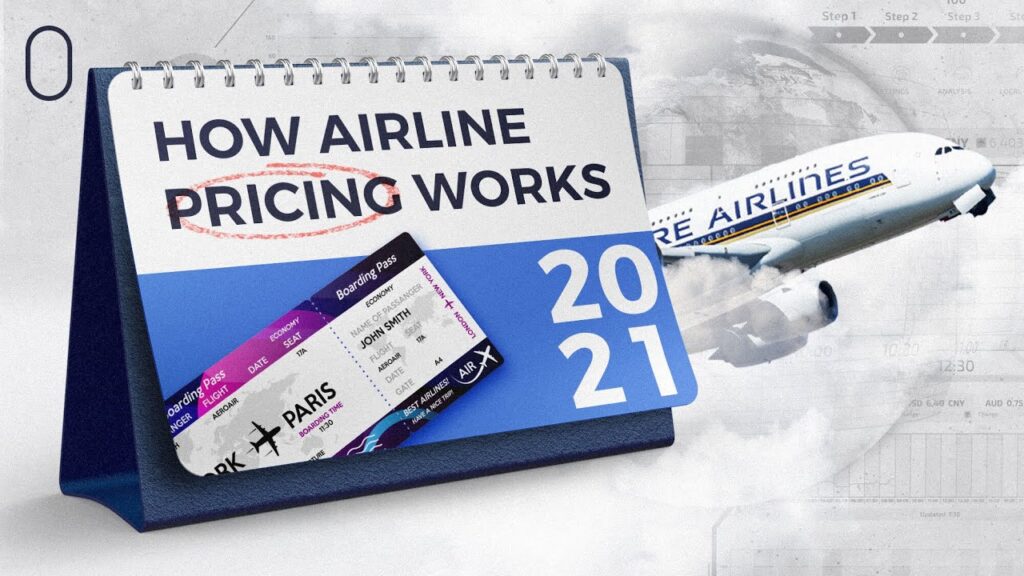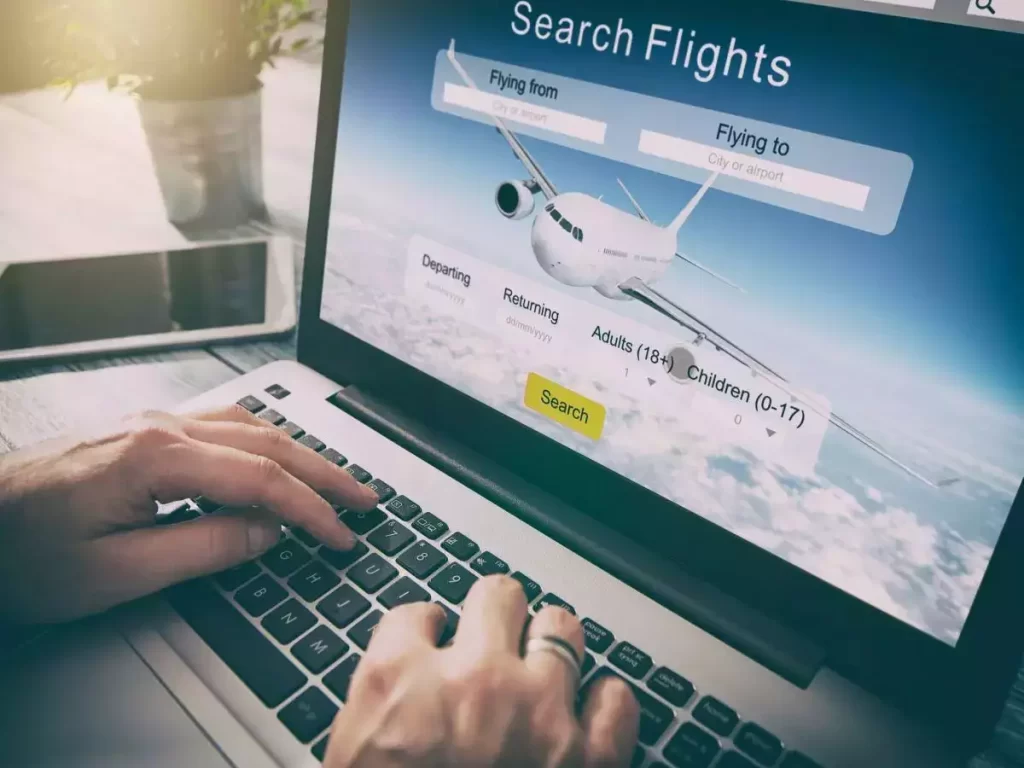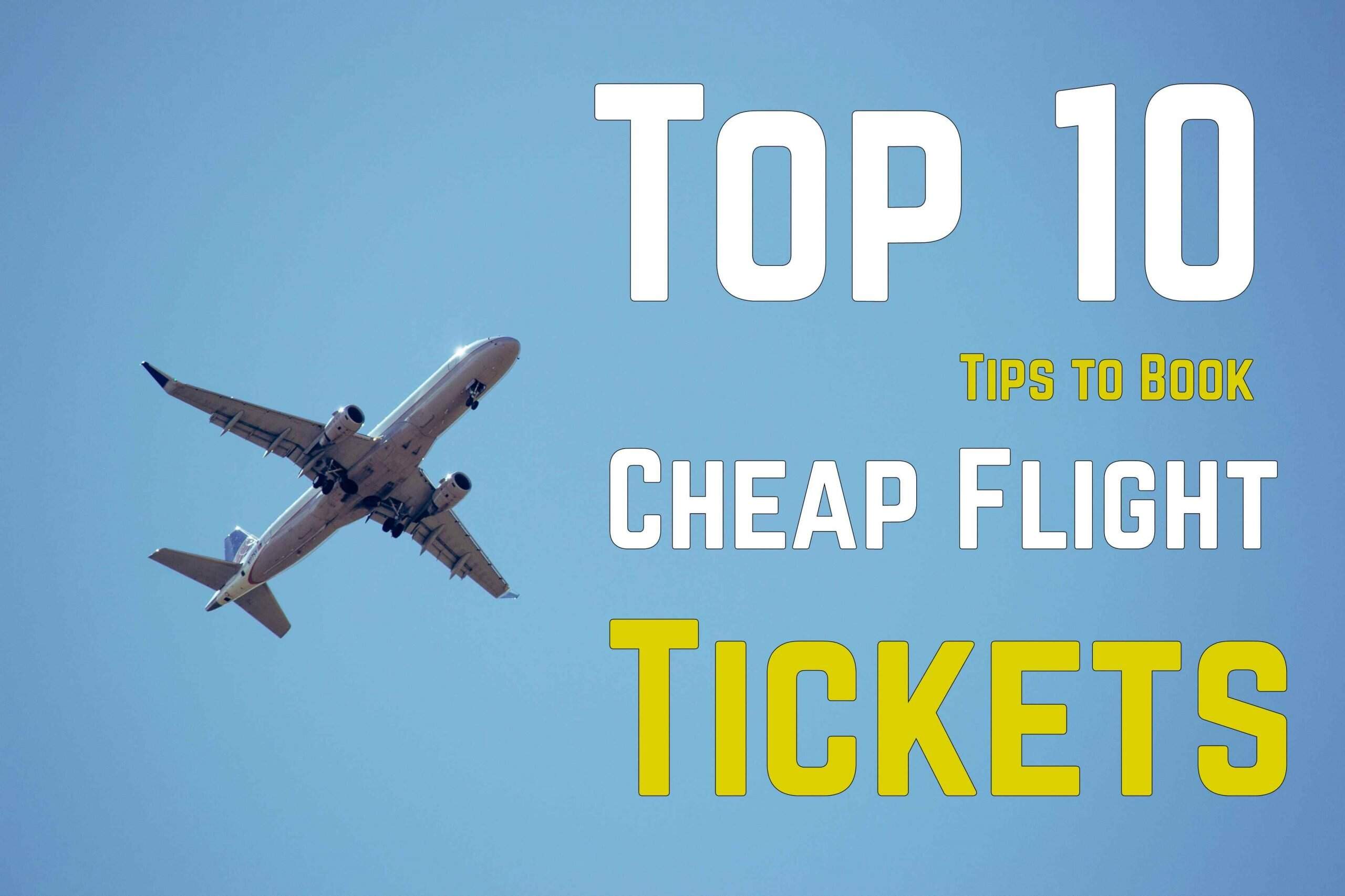Cheap airfare booking online has revolutionized the way we plan and purchase air travel. Gone are the days of relying solely on travel agents or airline ticketing offices. The internet has empowered travelers to easily search, compare, and book affordable flights from the comfort of their homes or on the go.
The primary benefit of booking flights online is the ability to access a vast array of options and prices from various airlines, all in one place. Online travel booking platforms aggregate flight data from multiple carriers, allowing you to quickly compare routes, dates, and fares to find the best deal that suits your budget and preferences.
Additionally, booking online often provides access to exclusive online-only deals and discounts that may not be available through traditional booking channels. Airlines and travel companies frequently offer promotional codes, loyalty program discounts, and other incentives to encourage online bookings.
With just a few clicks, you can explore countless flight combinations, filter results based on your preferences (such as non-stop flights, preferred airlines, or specific travel times), and secure your desired itinerary at a competitive price. The convenience and transparency of online booking have made it easier than ever to find and take advantage of cheap airfare opportunities.
Table of Contents

Understanding Airfare Pricing
Airfare pricing is a complex and dynamic process influenced by various factors. Airlines employ sophisticated pricing strategies to maximize revenue while considering market demand, competition, and operational costs. Here are some key factors that affect airfare prices:
Demand and Supply: The basic economic principle of supply and demand plays a significant role in airfare pricing. During peak travel seasons or popular events, airlines can charge higher prices due to increased demand. Conversely, flights with lower demand may offer cheaper fares to fill seats.
Advance Booking: Generally, the earlier you book a flight, the cheaper the fare. Airlines offer lower prices for early bookings to secure revenue and encourage travelers to commit to flights well in advance. As the departure date approaches, prices tend to rise.
Peak and Off-Peak Seasons: Airlines adjust their pricing based on seasonal demand patterns. Peak seasons, such as summer vacations and major holidays, typically have higher fares due to increased travel demand. Off-peak seasons, like late fall or early spring, often offer lower prices to stimulate demand during slower travel periods.
Airline Pricing Strategies: Airlines employ various pricing strategies to maximize revenue and remain competitive. Some airlines offer unbundled fares, where passengers pay for additional services like checked baggage or seat selection. Others use dynamic pricing, which adjusts fares based on real-time demand and availability.
Competition: Airfare prices are also influenced by competition among airlines operating on the same routes. Airlines may adjust their prices to undercut competitors or match their fares to remain competitive.
Fuel Costs: Fluctuations in fuel prices can significantly impact airfare pricing. When fuel costs rise, airlines may increase fares to offset the higher operational expenses.
Route and Distance: Longer flights and routes with less competition tend to have higher fares compared to shorter, more competitive routes.
By understanding these factors, travelers can better anticipate airfare pricing trends and potentially find more affordable flight options.

Tips for Finding Cheap Flights
Flexibility is key when searching for cheap airfare. Being open to different travel dates and times can significantly impact the prices you’ll find. Generally, flying mid-week (Tuesday through Thursday) tends to be cheaper than weekends. Additionally, early morning or late-night flights are often less expensive than those during peak hours.
Booking your flights well in advance, typically 4-6 months ahead of your travel dates, can also help you secure lower fares. Airlines release seats at their cheapest prices first, and these tend to sell out quickly. However, it’s also worth checking for last-minute deals, as airlines sometimes offer discounted rates to fill remaining seats on flights.
If your travel dates are flexible, consider using price tracking tools or fare alerts. These services monitor flight prices and notify you when there are significant drops or sales. This can help you snag great deals on routes you’re interested in.
Another strategy is to be flexible with your travel dates themselves. Searching for flights a few days before or after your desired travel window can sometimes reveal significantly lower prices. Many booking sites now offer a “flexible dates” option, making it easier to compare fares across a range of dates.
Lastly, consider breaking up your journey into separate legs or booking “open-jaw” flights (flying into one city and out of another). While this requires more planning, it can sometimes be cheaper than a traditional round-trip itinerary.
Top Online Travel Booking Sites
The internet has made it easier than ever to search for and book cheap flights. There are numerous online travel booking sites to choose from, each with its own features and benefits. Here are some of the most popular options:
Expedia: One of the largest and most well-known online travel agencies, Expedia offers a vast inventory of flights, hotels, rental cars, and vacation packages. The site is user-friendly, with powerful search filters and price comparison tools. Expedia also offers rewards programs and frequent deals.
Kayak: Kayak is a travel search engine that scans hundreds of travel sites to find the best deals on flights, hotels, and rental cars. It’s a great option for quickly comparing prices across multiple providers. Kayak also offers price alerts and a flexible date search feature.
Travelocity: Travelocity is another leading online travel agency, known for its easy-to-use website and mobile app. It offers a wide range of flight options, as well as packages that bundle flights, hotels, and rental cars. Travelocity also has a price-match guarantee and a rewards program.
Priceline: Priceline is famous for its “Name Your Own Price” feature, which allows travelers to bid on flights, hotels, and rental cars. It also offers traditional booking options and package deals. Priceline’s Express Deals can provide significant savings, although the specific details of the flight or hotel are hidden until after booking.
Skyscanner: Skyscanner is a global travel search engine that compares millions of flights from airlines and travel sites. Its user-friendly interface and powerful filters make it easy to find the best deals. Skyscanner also offers a “Greener Flights” feature for eco-conscious travelers.
Many of these sites have received positive user reviews, praising their extensive inventory, user-friendly interfaces, and competitive pricing. However, some users have reported issues with customer service or hidden fees. It’s always a good idea to read reviews and compare prices across multiple sites before booking.

Comparing Airfare Prices Across Sites
Comparing airfare prices across multiple travel booking sites is crucial to finding the best deals on flights. Airlines and online travel agencies often offer different prices for the same routes and dates, so it’s essential to shop around and not settle for the first option you find.
One effective way to compare airfare prices is to use metasearch engines like Kayak, Skyscanner, or Google Flights. These platforms aggregate flight data from various airlines and travel sites, allowing you to view a comprehensive list of available options and prices in one place. Metasearch engines can save you time and effort by eliminating the need to visit individual airline or travel agency websites separately.
Another helpful tool for price comparison is browser extensions or add-ons that track flight prices and alert you to price changes or potential deals. Extensions like Hopper, Scott’s Cheap Flights, and AirfareWatchdog monitor your desired routes and notify you when prices drop, enabling you to book at the most opportune time.
It’s also worth checking prices directly on airline websites, as sometimes they offer exclusive deals or discounts not available on third-party booking sites. Additionally, some airlines may have sales or promotional offers that are only advertised on their own platforms.
By leveraging metasearch engines, browser extensions, and direct airline websites, you can effectively compare airfare prices across multiple sources and increase your chances of finding the most affordable flights for your travel plans.
Budget Airlines and Low-Cost Carriers
Budget airlines, also known as low-cost carriers (LCCs), have revolutionized the air travel industry by offering affordable fares to passengers. These airlines operate with a different business model than traditional full-service carriers, allowing them to cut costs and pass on the savings to customers.
Introduction to Budget Airlines
Budget airlines typically offer lower base fares by eliminating many amenities and services that are standard on traditional airlines. They often have a simple pricing structure, with additional fees for extras like checked baggage, seat selection, and in-flight meals or beverages. These airlines generally operate point-to-point routes, rather than the hub-and-spoke model used by major carriers, which helps reduce costs.
Pros and Cons of Budget Airlines
One of the main advantages of budget airlines is their affordability, making air travel accessible to a wider range of people. They also often offer direct flights to popular destinations, saving time and hassle for travelers. However, there are some trade-offs to consider, such as tighter seating configurations, limited amenities, and potentially higher fees for extra services.
Popular Budget Airlines by Region
North America:
- Southwest Airlines
- Frontier Airlines
- Spirit Airlines
- Allegiant Air
Europe:
- Ryanair
- easyJet
- Wizz Air
- Vueling
Asia:
- AirAsia
- IndiGo
- Cebu Pacific
- Lion Air
Latin America:
- Volaris
- JetSmart
- Viva Air
When considering budget airlines, it’s essential to weigh the pros and cons and carefully review the fees and policies to ensure they align with your travel needs and preferences.
Booking Hacks and Strategies
Hidden City Ticketing: This controversial technique involves booking a flight with a layover as your final destination and skipping the remaining leg(s). While airlines frown upon this practice, it can sometimes yield significant savings. However, be aware that it violates most airlines’ policies and risks penalties if caught.
Split Ticketing: Instead of booking a single ticket for a multi-city trip, split ticketing involves booking two or more separate tickets to take advantage of lower fares. This strategy requires careful planning and research but can unlock substantial savings, especially for international travel.
Airline Mistake Fares: Airlines occasionally publish fares with incorrect pricing due to human or technical errors. These “mistake fares” can offer incredible discounts, sometimes up to 90% off regular prices. However, they’re short-lived, and airlines may cancel or re-price the tickets once the mistake is discovered.
Loyalty Programs: Signing up for airline loyalty programs is free and can provide access to discounted fares, upgrades, and other perks. Even infrequent travelers can benefit from these programs by earning and redeeming miles for future trips.
Flexible Dates and Times: Being flexible with your travel dates and times can open up cheaper fare options. Consider flying on less popular days or during off-peak hours to save money.
Clearing Cookies and Browser History: Airlines and travel sites sometimes display higher fares based on your browsing history and location. Clearing your cookies and browsing in private or incognito mode can help circumvent this price discrimination.
Best Times to Book Flights
Timing is everything when it comes to booking cheap flights. Both data-driven research and industry experts agree that there are ideal booking windows when you’re more likely to find lower airfare prices, depending on whether you’re flying domestically or internationally.
For domestic flights within the United States, the optimal booking window is typically between 3 weeks and 4 months before your desired travel date. Booking too early or too late can often result in higher prices. According to data analysis by travel platforms like Expedia and CheapAir, the sweet spot for domestic flights tends to be around 1-3 months in advance.
International flights require more advance planning. The ideal booking window for international travel is generally between 2-8 months before your departure date. Booking too close to your travel dates can lead to significantly higher prices, as airlines tend to increase fares as the flight fills up. However, booking too far in advance may also mean missing out on potential price drops or sales.
It’s worth noting that these booking windows are not set in stone and can vary depending on factors such as destination, season, and airline pricing strategies. However, following these general guidelines can increase your chances of finding cheaper airfare prices when booking online.
Saving on Additional Travel Costs
Beyond the base airfare, travelers often face a variety of additional fees and charges that can add up quickly. However, there are strategies to minimize these ancillary costs and save money on your overall travel expenses.
Baggage Fees: Many airlines now charge fees for checked bags, with costs varying based on the number, size, and weight of the bags. To avoid these fees, consider packing light and only bringing a carry-on bag. If you must check a bag, weigh it beforehand and pay the fee in advance online, as it’s usually cheaper than paying at the airport. Some airlines also offer discounts or free checked bags for certain co-branded credit card holders or elite status members.
Seat Selection Fees: Airlines often charge extra for preferred seating, such as exit rows or seats with extra legroom. While these fees can be tempting for added comfort, consider whether it’s worth the cost for your specific flight. If you’re traveling with a companion, you can often select adjacent seats for free during online check-in.
In-Flight Amenities: Meals, snacks, and beverages are increasingly being sold as extras on many flights. Pack your own snacks and refillable water bottle to avoid these charges. If you must purchase food or drinks on board, opt for the least expensive options.
Travel Insurance and Extras: Airlines may try to upsell you on travel insurance, priority boarding, or other add-ons during the booking process. Carefully consider whether these extras are truly necessary for your trip, as they can quickly inflate the overall cost.
Ground Transportation: Research and compare costs for airport transportation, such as shuttles, taxis, or ride-sharing services. Many cities offer affordable public transportation options from the airport, or you may be able to split the cost with travel companions.
By being mindful of these additional fees and making strategic decisions, you can significantly reduce the overall cost of your travel beyond just the airfare itself.
Flexible Travel and Open-Jaw Flights
Flexible travel dates and open-jaw flights can often unlock significant savings when booking airfare online. Open-jaw flights refer to an itinerary where you fly into one city and out of another, rather than returning to your origin. This can be useful for those planning extended trips or wanting to visit multiple destinations without backtracking.
The key benefit of open-jaw flights is avoiding the often expensive cost of returning to your original departure city. Many airline search engines and online travel agencies now make it easy to search for and book these more complex routings. Tools like Google Flights and Kayak allow you to search multi-city trips and view open-jaw options.
In addition to open-jaw possibilities, having flexibility with your travel dates can reveal significantly cheaper fares. Even shifting your trip by a day or two can sometimes save hundreds of dollars. Most travel booking sites provide a calendar view to easily identify the cheapest dates for your route.
Some dedicated tools like Skyscanner’s “Cheapest Month” search can quickly scan an entire month or year to pinpoint the lowest prices. Being flexible, even by a day or two on each end of your trip, can pay off substantially. Travelers willing to adjust their plans slightly can take advantage of these cost-saving opportunities when booking airfare online.
Student, Military, and Other Discounts
Certain groups are eligible for special airfare discounts based on their status or affiliation. Students and military members can often find cheaper flight options through dedicated discount programs and deals.
Student Discounts
Many airlines offer student discounts to those enrolled in accredited colleges, universities, or other educational institutions. To qualify, you typically need to provide proof of enrollment, such as a valid student ID or enrollment letter. Student discounts can range from 5% to 20% off regular fares, depending on the airline and route.
Some airlines also partner with student travel agencies or organizations like STA Travel and Student Universe to offer exclusive student deals and packages. These platforms consolidate student-specific airfares and allow you to book discounted flights easily.
Military Discounts
Active-duty military personnel, veterans, and their dependents are often eligible for discounted airfares from various airlines. The discount amount and eligibility requirements vary by airline, but most require a valid military ID or proof of service.
Some airlines also offer special military fares or vacation packages tailored specifically for service members and their families. These deals may include additional benefits like baggage fee waivers or priority boarding.
Other Discounts
Beyond students and military, certain airlines and travel sites offer discounts for seniors, children, government employees, corporate travelers, or members of specific organizations or loyalty programs.
It’s always worth checking if you qualify for any special rates or discounts based on your age, occupation, or affiliations. Many airlines and travel sites have dedicated sections or search filters to help you find and book these discounted fares.
To take advantage of these discounts, be prepared to provide the necessary documentation or proof of eligibility during the booking process or at the airport. Advance planning and research can help you maximize savings on your next flight.
Booking in Foreign Currencies
One often overlooked strategy for finding cheaper airfares is to book your flights in foreign currencies. Airlines price their tickets based on the local currency of the departure and arrival cities, as well as other factors like demand and competition on specific routes. By taking advantage of currency conversion rates, you may be able to find lower prices than booking in your home currency.
The key is to look for routes where your home currency is stronger than the local currency of the departure or arrival city. For example, if you live in the United States and want to fly to Europe, you could try booking your flight on the European airline’s website and pay in Euros instead of US Dollars. If the US Dollar is stronger against the Euro at that time, the ticket price converted to Dollars may be lower than booking directly from a US-based site.
Another tactic is to use a credit card that doesn’t charge foreign transaction fees, which can add up to 3% or more on international purchases. This way, you can book in the local currency without incurring extra costs. Some travel credit cards even offer bonus points or miles for purchases made abroad, further incentivizing booking in foreign currencies.
It’s important to note that currency exchange rates fluctuate constantly, so this strategy may not always yield savings. Additionally, some airlines or travel sites may automatically convert the currency for you, negating any potential benefits. However, with a bit of research and flexibility, booking in foreign currencies can be a useful way to uncover cheaper airfares for your next trip.
Mistakes to Avoid When Booking Cheap Flights
Booking cheap flights online can be a great way to save money, but there are several common mistakes that can end up costing you more in the long run. One of the biggest pitfalls is failing to read the fine print and understand the terms and conditions of your ticket. Many budget airlines charge additional fees for things like checked baggage, seat selection, and even carry-on bags. These fees can quickly add up, negating the savings from the initially cheap fare.
Another mistake to avoid is being too rigid with your travel dates and times. Flexible travelers often have an easier time finding the cheapest fares. If you’re able to adjust your travel dates by a day or two, or be open to different departure and arrival times, you may find significantly lower prices.
It’s also important to be wary of hidden fees and charges. Some online travel booking sites tack on additional fees for things like booking fees, service charges, or credit card processing fees. These fees may not be immediately apparent, so be sure to read the fine print and understand the total cost before completing your purchase.
Finally, be cautious of deals that seem too good to be true. While it’s possible to find great bargains, extremely low fares may be a sign of a scam or a heavily restricted ticket with numerous limitations and fees. Always research the airline or travel site thoroughly before booking, and be sure to read reviews from other travelers.
By avoiding these common mistakes and being an informed consumer, you can maximize your chances of finding truly cheap airfare and enjoying a hassle-free travel experience.
Future Trends and Innovations
The world of online airfare booking is rapidly evolving, driven by emerging technologies that promise to revolutionize the way we search, compare, and book flights. One of the most exciting developments is the integration of artificial intelligence (AI) into pricing and booking algorithms. AI-powered systems can analyze vast amounts of data, including historical pricing patterns, demand forecasts, and real-time market conditions, to dynamically adjust airfares and offer personalized pricing recommendations to travelers.
Another area where AI is making significant strides is in natural language processing and conversational interfaces. Travelers can now use voice commands or chat interfaces to search for flights, receive personalized recommendations, and even complete bookings, all through natural language interactions.
Virtual reality (VR) and augmented reality (AR) technologies are also poised to transform the travel planning experience. Imagine being able to virtually tour a destination, explore hotels and attractions, and even preview your seat on the aircraft before booking. VR and AR can provide immersive, interactive experiences that help travelers make more informed decisions and build excitement for their upcoming trips.
Additionally, blockchain technology has the potential to streamline the booking process and enhance transparency in the travel industry. Blockchain-based platforms could enable secure, decentralized booking systems, eliminating the need for intermediaries and reducing transaction costs.
As these technologies continue to evolve and become more widely adopted, we can expect a more seamless, personalized, and engaging experience when booking cheap airfare online. The future of travel planning promises to be more efficient, convenient, and enjoyable than ever before.



